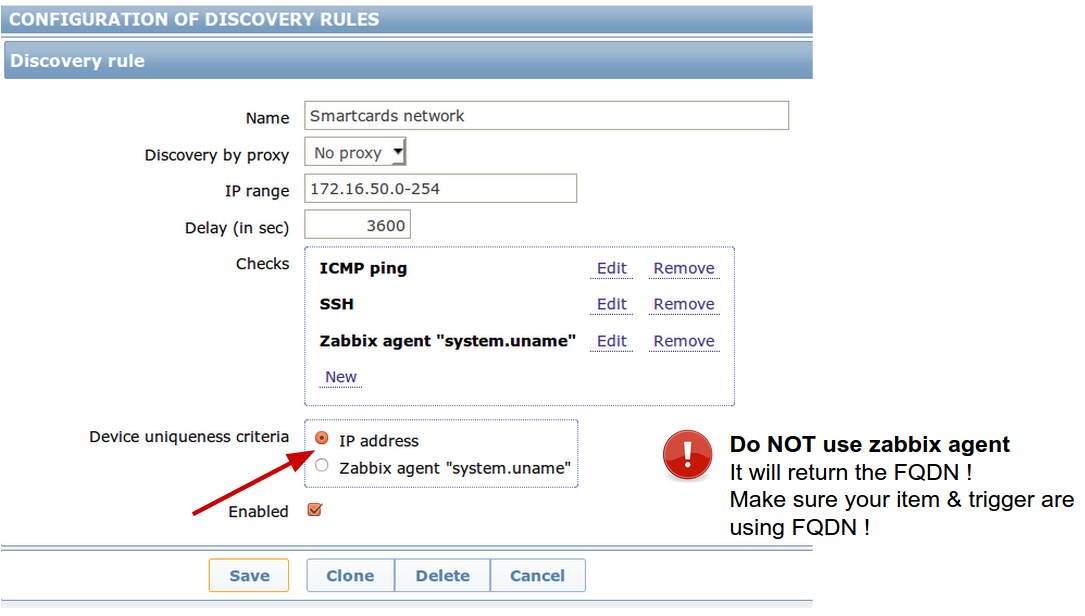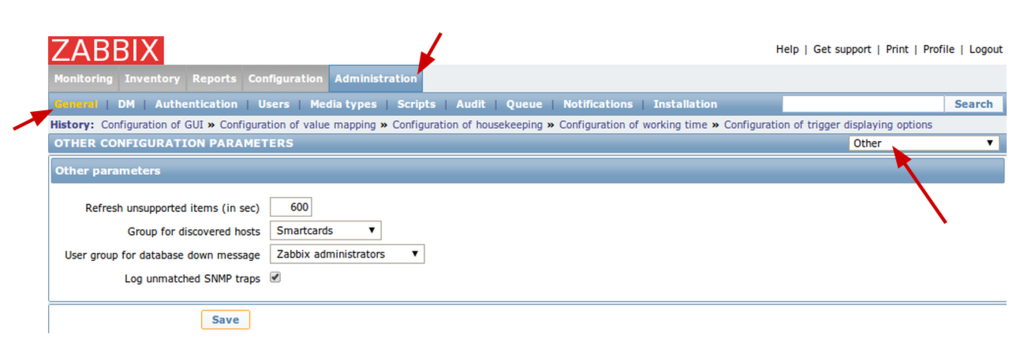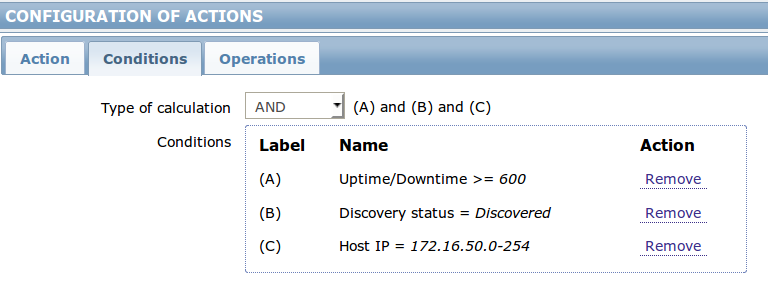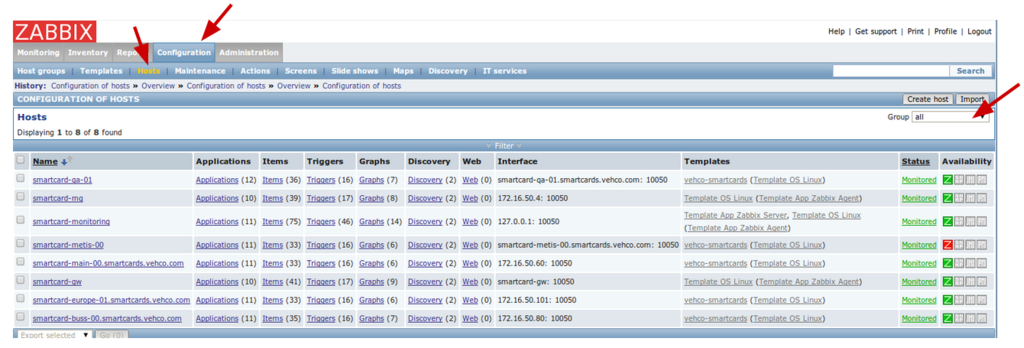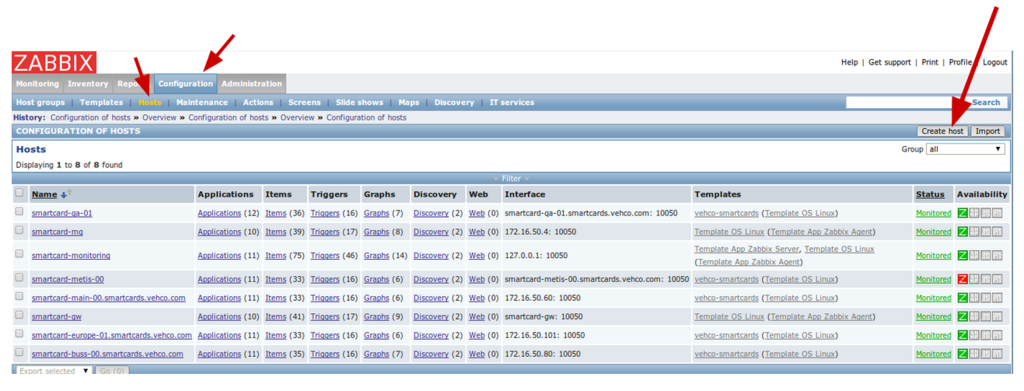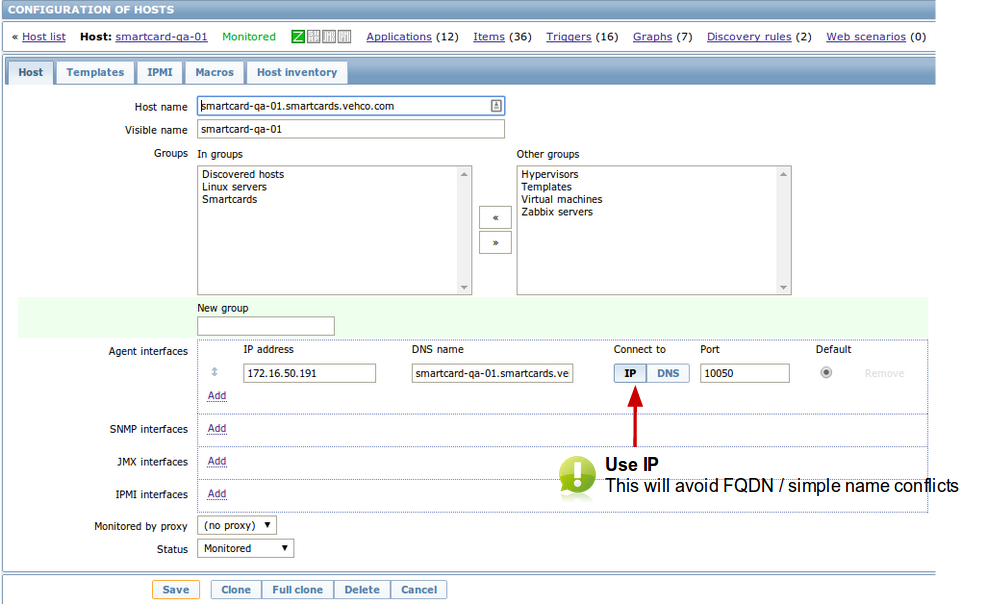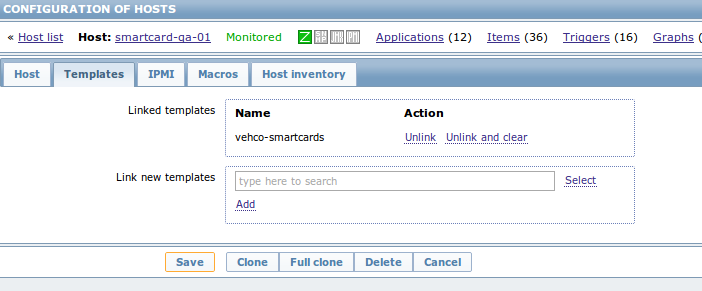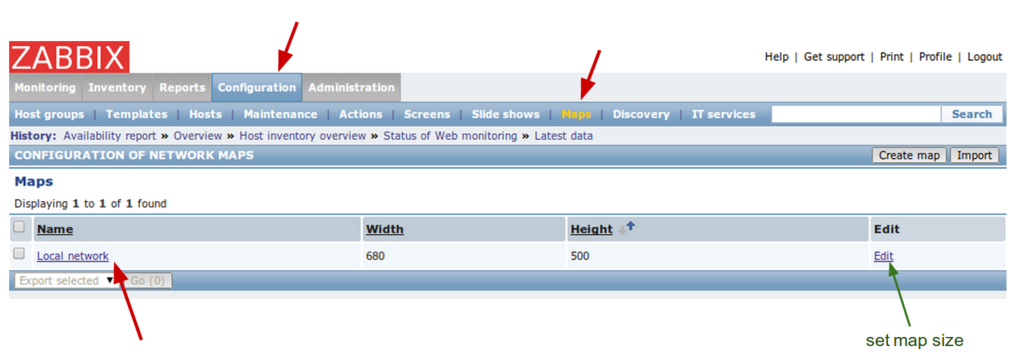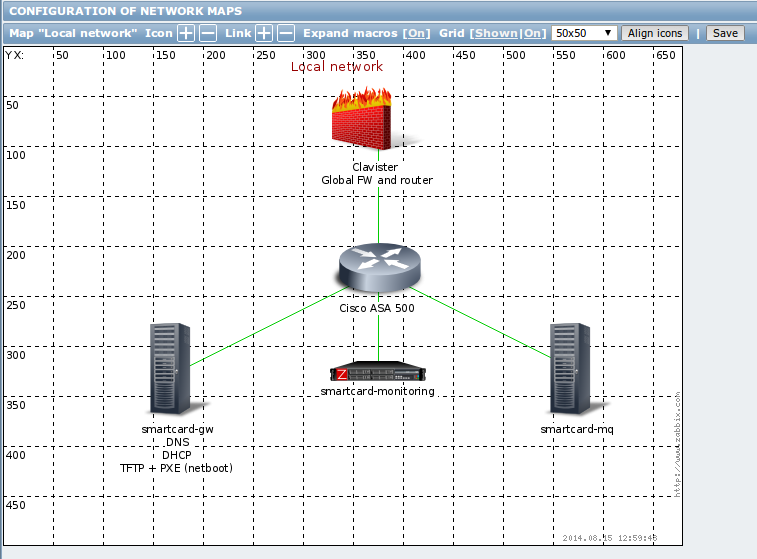Difference between revisions of "Zabbix server hosts management"
(→Add host) |
|||
| Line 105: | Line 105: | ||
** You can create your own groups and classification as well | ** You can create your own groups and classification as well | ||
* Agent interface: Fill the info of Zabbix agent running on host | * Agent interface: Fill the info of Zabbix agent running on host | ||
| − | ** Select the ''' | + | ** Select the '''IP''' option instead of DNS. That will avoid some conflicts between FQDN and simple name. |
* Status: Select initial status | * Status: Select initial status | ||
| − | '''IMPORTANT !!''' The name of the ''hostname'' must match the real hostname - as return by the `hostname` command !! | + | '''IMPORTANT !!''' |
| + | |||
| + | The name of the ''hostname'' must match the real hostname - as return by the `hostname` command !! | ||
| + | |||
| Line 134: | Line 137: | ||
5. Click "save" at the bottom of the page. | 5. Click "save" at the bottom of the page. | ||
| − | |||
| − | |||
| − | |||
| − | |||
| − | |||
| − | |||
=Network map= | =Network map= | ||
Revision as of 11:43, 19 August 2014
Contents
Discovery
Discovery rule
You can create a new Discovery rule using the "create discovery rule" button. Create a Local network rule:
→ Configuration >> Discovery
Then you should have the following settings:
IP range: your network
Checks:
- ICMP ping
- SNMP v2
- SSH
- Zabbix agent
Uniqueness: IP
!!! If you use Zabbix agent "system.uname" as unique criteria you might encounter a problem !!!
- Dicovery Zabbix agent will bring back the FQDN of the server
- Template rules are based on the short name of the server
So, with Zabbix agent some template item won't work !!
Discovery default group
You can set a configuration property for the default group of discovered hosts in:
→ Administration >> General >> Other
Discovery default template
You can set a discovery action to register all Zabbix discovered hosts in a specific template.
→ Configuration >> Actions >> Discovery
Then you can either create a new one or edit an existing one.
- Tab 1 Action : just put a name and set Enabled
- Tab 2 Conditions : let the default options
- Tab 3 Operations : set the default template
Hosts configuration
Hosts overview
→ Configuration >> Hosts
Add host
You have to had a host (= machine with a zabbix agent) on the server side in order to monitor it.
1. Go to the Configuration > Hosts > "Create host"
2. Now fill the following details of remote host
- Hostname: Hostname of Remote system
- Visible name: Name to be display in zabbix
- Group: Select the desired group for you host
- You should use Linux at least
- You can create your own groups and classification as well
- Agent interface: Fill the info of Zabbix agent running on host
- Select the IP option instead of DNS. That will avoid some conflicts between FQDN and simple name.
- Status: Select initial status
IMPORTANT !!
The name of the hostname must match the real hostname - as return by the `hostname` command !!
3. Set some monitoring templates to apply
Click on the "Templates" tab
To get the list of templates, just type template in the search area.
Don't forget to click the "ADD" button!
- My custom vehco-smartcards includes the Zabbix agent template
- The Linux OS includes the Zabbix agent template. :)
4. Automatic host inventory
- Click on the "host inventory" tab
- Enable the Automatic option.
5. Click "save" at the bottom of the page.
Network map
On the main screen you can create / manage maps and set their size using Edit button:
→ Configuration >> Maps
On the map, only put the main network elements = keys elements that are important to manage!
Ex: do not put the netboot clients, only the servers.

